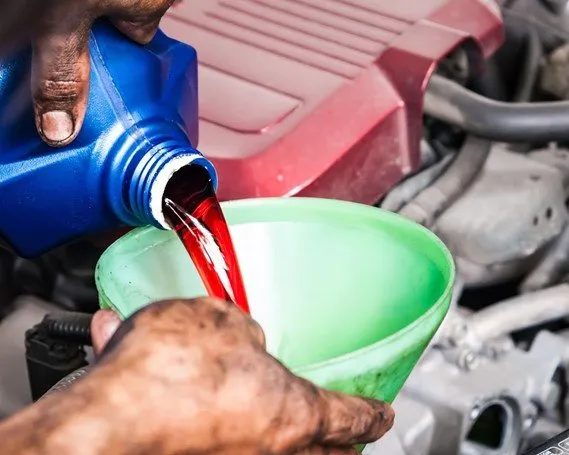Your car may present an image of power, control, and resilience on the outside, but all those impressive strengths and capabilities depend on the presence and cleanliness of certain key internal fluids. These fluids enable everything from lubrication and heat management to maneuverability.
Once you understand which fluids your car requires, what these fluids do, and what can go wrong without proper fluid management, you’ll have a better understanding of the need for proper fluid maintenance. Here are four automotive fluids that merit a prominent place on any car owner’s priority list.
1. Motor Oil
Motor oil protects your car’s engine against overheating and premature wear. Unfortunately, this oil wears out itself after a certain number of miles. As it collects more and more debris, it becomes increasingly unable to provide smooth lubrication. Constant exposure to engine heat will also cause it to break down eventually.
For this reason, you need to follow your automaker’s recommendations in your service manual regarding oil changes. Regular service inspections ensure that these oil changes get performed while also identifying potential oil leaks or other issues that require repair.
2. Automatic Transmission Fluid
The fluid in your car’s automatic transmission plays multiple roles, from lubricating the gears to cooling the transmission and providing hydraulic power for shifting. This fluid may appear bright red or some other bright color, depending on the specific type of fluid your vehicle requires.
Since manufacturers typically don’t call for transmission fluid replacement for 100,000 miles or more, you may not think much about this substance at all. Even so, you need to have the fluid checked periodically. Dark fluid with a burnt odor usually needs replacing, while low fluid may indicate a leak in the transmission system.
Watch out for telltale signs of transmission fluid problems. Examples include reddish puddles underneath your car, a burning smell that occurs while driving, rough shifting, and gear slippage.
3. Coolant
Your car’s coolant performs important temperature maintenance functions. This fluid keeps the water in your engine from freezing on chilly days and helps prevent engine overheating on scorching days. If you let a coolant problem go unaddressed, you risk significant engine damage.
Your automotive technician can advise you on how frequently to have your coolant changed. Dirty coolant can send deposits into various parts of the cooling system, which can clog it and prevent proper function. Aged coolant can grow acidic enough to eat away at components or allow rust to develop.
A radiator or coolant-line leak can cause you to lose this precious fluid rapidly. If you see your temperature gauge needle shoot up into the danger zone, pull over as soon as you safely can and turn your engine off. Call for a tow service instead of trying to top off the coolant (which won’t help if you’ve sprung a leak).
4. Fuel
While you might not worry as long as you have enough gas in your tank to reach your destination, you should get into the habit of keeping the fuel tank at least one-quarter full. For one thing, the gas in your tank keeps your fuel pump cool. Without sufficient gas, the fuel pump takes in air instead of fuel, which encourages it to overheat.
Dirt and other sediments can collect at the bottom of the fuel tank. The lower the fuel level, the greater the likelihood that this debris will get pulled from the tank into your fuel filter, fuel lines, and fuel injector. The resulting clogs can lead to mechanical issues.
Powers Transmissions can keep an eye on your vehicle’s essential fluids and make sure your car remains roadworthy all year round, year after year. Contact us today to learn more or schedule automotive service.

